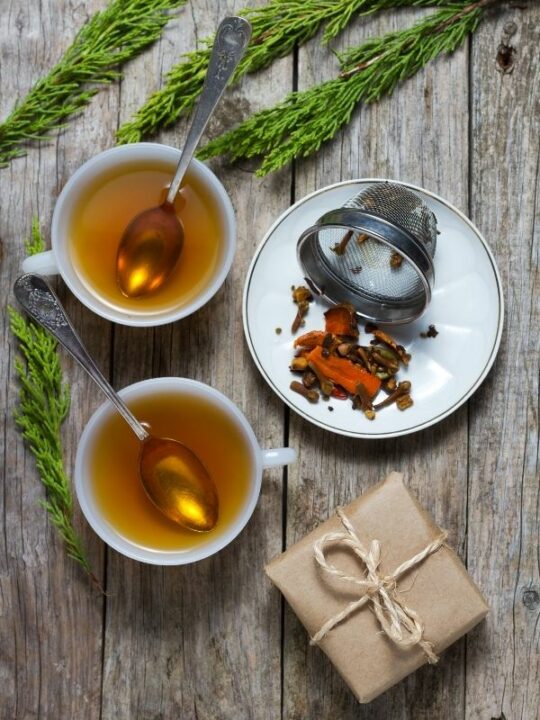Did you know that more than half of all the tea consumed in the U.S. is black tea? That says a lot about the popularity of this 17th century beverage.
Not surprisingly, it’s the foundation of many types of tea across the world- like the Indian chai blends that consist of black tea infused with spices like cinnamon.
While the prominence of this drink remains undisputable, there is one aspect that causes tea lovers to be at loggerheads.
Does black tea really contain caffeine? If so, just how much caffeine does it have? Read on to learn detailed answers to these questions.
Is black tea caffeinated?
Black tea is indeed caffeinated. If anything it contains a higher amount of caffeine than what is found in green and white tea. The specific amount of caffeine present in black tea depends on various factors, such as water temperature, steeping time and the kind and quantity of tea leaves used.
The caffeine content in black tea
If you love black tea, you might be wondering just how much caffeine is present in this drink.
In the tea front, black tea has the highest concentration of caffeine, ranging from 39 to 109 mg per an 8-ounce cup. For comparison purposes, green tea contains just 35 mg while white tea contains 15 mg for a similar serving
Having a higher caffeine content is not necessarily a bad thing. But it does mean that you should be mindful of the amount of black tea you consume each day.
As this study shows, you should not consume more than 400 mg of caffeine per day. Going by our earlier estimates where an 8-ounce cup of black tea contains up to 109 mg of caffeine, it means that you should not take more than 4 cups of black tea.
And if you’re consuming other high-caffeine foods and beverages like energy drinks and chocolate delicacies, then you should reduce your intake of black tea even more.
Factors that affect the level of caffeine in black tea
The amount of caffeine will differ from one cup of black tea to another. This will depend primarily on:
Steeping duration
The technique you use to brew your tea will have a big impact on its caffeine content. If you steep your black tea for longer, the resulting beverage will be more potent.
For illustration purposes, we’ll use Tazo Earl Grey, an example of an aromatic black tea. If you were to steep this tea for 1 minute in 6 ounces of water, it would contain 40 mg of caffeine.
If you steep it for up to 3 minutes and keep every other factor constant, the caffeine content increases to 59 mg.
Temperature of water
Another factor that affects the caffeine content is water temperature.
With other tea varieties like green and white tea, you should only steam the water briskly. But when it comes to black tea, bring the water to a full boil to get the best flavor.
The recommended water temperature for brewing black tea is between 208 and 212°F (98 to 100°C). If you prefer a high caffeine content, then go for the maximum 212°F (100°C). But if you don’t want it too potent, then pour the water on the tea leaves as soon as it hits the 208°F (98°C) mark.
Type of tea
If you’d like your black tea to have a high caffeine content, be sure to use conventional teabags. Teabags are mostly made up of broken tea leaves, and as a result, they generate an infusion with more caffeine than loose leaves.
Amount of tea leaves used
If using loose leaves, you can add more tea leaves to achieve a higher caffeine content. With tea bags though, these produce a standard amount of caffeine.
Benefits of caffeine in black tea
Taking the recommended amount of black tea confers a number of health perks. The greatest of these benefits is its ability to improve one’s focus.
Researchers set out to investigate the merits of caffeine in black tea. Based on their study, published in the PubMed journal, it was discovered that black tea not only enhances an individual’s alertness but also their accuracy.
But as we mentioned earlier, it’s important that you don’t exceed the recommended intake of black tea.
This is because a high caffeine content will cause your body more harm than good. To be more specific, it may lead to feelings of anxiety, unease and stress.
To enjoy its health benefits, stick to the safe threshold of 3 to 4 cups of black tea each day.
